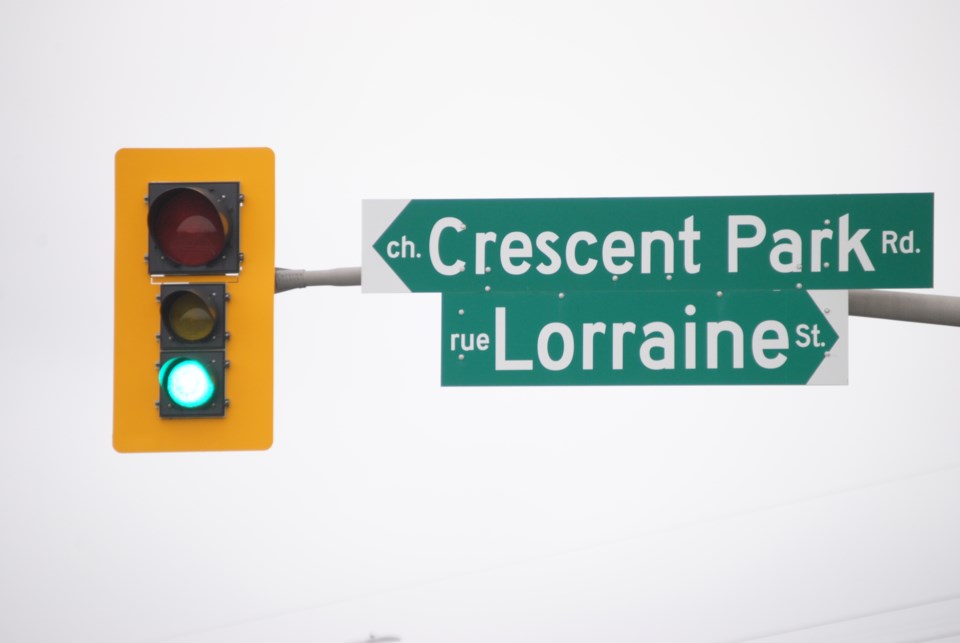Last summer, the City of Greater Sudbury applied for a Rapid Housing Initiative grant from Canada Mortgage and Housing Corporation, which provided $7.4 million to help fund a permanent affordable housing development on Lorraine Street.
At the time, the intent was to use the money from the CMHC to build a 40-unit apartment complex and dedicate this facility to transitional housing with wrap-around support from an on-site Assertive Community Treatment Team (ACTT) run by Health Sciences North.
The cost of the ACTT professionals is to be funded by the city through an anticipated grant from the province, which the city has also applied for. The amount required from the province for salaries and operational expenses will be approximately $2.5 million per year once it is built.
During the Finance meeting on Aug. 9, city council is being asked to approve a budget of $14.4 million for the project. This will include the $7.4 million from the CMHC, $1 million from the Ontario Priorities Housing Initiative, and up to $6 million from the Social Housing Capital Reserve Fund.
The city has not yet been granted permanent funding from the province to pay for the clinical support services of the on-site ACTT.
This new cost of the facility is much higher than the $10-million capital investment that was contemplated in the business case that was approved with the 2021 budget. Also, when council approved the Lorraine Street site, it was anticipated that we would build a 28- to 40-unit complex, dependent upon what we could build for $10 million, knowing that we were going to receive $7.4 million from the CMHC to put towards the cost. The $14.4 million budget is 44-per-cent more than we had approved in 2021.
Even though, at the time, I supported the recommendation as presented by staff in August 2021, it bothered me that there was no opportunity for public input prior to making the decision.
That concern about the failure to bring this up with the public prior to presenting it to council was confirmed the day after the council meeting as I spent hours on the phone with upset constituents.
Shortly afterwards I was presented with a petition signed by more than 350 residents who still have serious concerns that the Lorraine Street location is not the proper place for a transitional housing initiative.
Some of their main issues include the absence of community services to supplement the clinical services that will be provided on site, as well as the proximity to a high school and a daycare centre. Plus, there is the fact that it would not be compatible with the surrounding neighbourhood.
They also expressed their outrage that there was no public consultation before council made their decision. They learned about this project in the media the day after the council meeting.
After listening to the residents living in the proximity of Lorraine Street, and after having time to fully evaluate the situation, I am in full agreement with the residents who have expressed their concerns to me.
It is perfectly clear that Lorraine Street is not the right location for a transitional housing initiative. A transitional housing facility for chronically homeless people with serious mental health and/or addiction issues should be located in close proximity to and integrated with other health, social and harm reduction services. This means that the preferred site would most likely be in the downtown area which would be within walking distance of the federal, provincial and municipal offices, medical clinics, the methadone clinic, the managed alcohol treatment centre, the temporary supervised consumption site, the Elgin Street Mission, the Samaritan Centre, and many other public and private services that are necessary for the transitional housing initiative to be successful.
Participants of the program should also be closer to their community family of homeless friends to whom they have come to count on for social support. After a period of time receiving the on-site intensive clinical and non-clinical supports it would be hoped that the participants will be sufficiently stabilized so that they could transfer to a long-term placement in permanent social housing accommodations across the municipality and be provided with less intensive on-going supports.
In fact, until the CMHC announced the availability of the RHI grant, city staff had never even considered the Lorraine Street site as a possible location for the transitional housing initiative. They were trying to find suitable locations in the downtown area. The Lorraine Street site was chosen because it was the only municipally owned property that was fully qualified for the CMHC grant.
The residents living in the Lorraine Street area agree that council should be facilitating more supportive services for the chronically homeless, but they are strongly recommending that the Lorraine Street site is better suited to long-term permanent affordable housing for seniors since it is a residential neighbourhood and many of the current residents are older adults.
I will continue to represent the wishes of my constituents by expressing my strong support for an affordable housing apartment building on the Lorraine Street site, ideally for older adults. And I will continue to voice their objection to using the Lorraine Street site for a transitional housing initiative for the chronically homeless with complex mental health and/or addiction issues.
I also cannot justify a budget of $14.4 million when council only approved a $10-million capital investment in 2021.
Staff have promised another public meeting with residents to discuss the design and site plan for the Lorraine Street complex. I expect that meeting to be well intended by constituents who will be voicing their opposition to any thoughts of continuing with the plan to make this a transitional housing facility.
Robert Kirwan is the Greater Sudbury city councillor for Ward 5.
